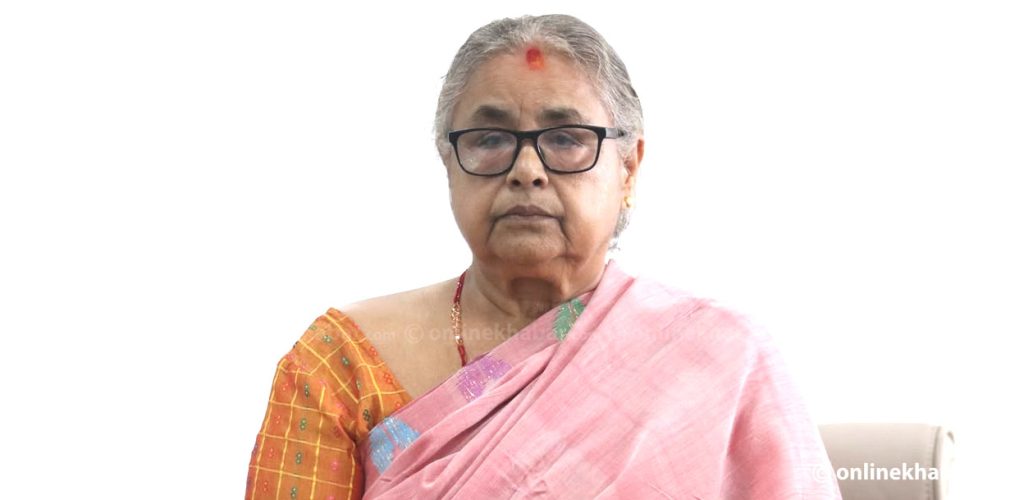
Social media is no longer just a digital tool—it’s the heartbeat of modern communication. In Nepal, as in many parts of the world, it has become synonymous with the internet itself. For millions, it’s where families stay connected, businesses thrive, ideas are exchanged, and news is consumed. It’s a forum for expression, a marketplace, and a public square rolled into one.
Given its ubiquity, it’s understandable that governments feel compelled to regulate it. The state, entrusted with safeguarding public welfare, has the inherent authority to oversee platforms that impact its citizens. Just as it regulates imports—ensuring vehicles meet safety standards and offer proper after-sales support—it can and should regulate digital platforms to protect users and uphold societal values. We cannot only argue saying internet freedom. Considering social dynamics and directive from Supreme Court of Nepal, advocating absolute freedom in internet without restriction is not convincing. However, regulation must not be confused with suppression.
Freedom faces threat
Nepal’s Supreme Court has recognized the need to regulate social media. Directive of Supreme Court should not be interpreted in the way that it has asked to restrict social media without adopting parliament made law. Regulation restricting any fundamental right must be lawful, proportionate, and rights-respecting.
The recent government move to restrict access to major platforms under the Electronic Transaction Act (ETA) fails on all three counts. The ETA does not explicitly empower the executive to impose blanket bans on social media. Nor is its legislative intent aligned with such sweeping restrictions. Using a directive under this Act to enforce a nationwide block circumvents due process and undermines the rule of law. It’s not regulation—it’s overreach.
Fundamental rights, including freedom of expression and access to information, can be curtailed only through laws that meet the test of necessity and proportionality. A blanket ban, by its very nature, fails this test. It disregards the collateral damage inflicted on citizens, businesses, and even state institutions.
The economic and social fallout of such a ban is significant. Thousands of Nepali entrepreneurs rely on social media to market products, engage customers, and earn livelihoods. Content creators, educators, and small businesses have built entire ecosystems around these platforms. Shutting them down disrupts income, stifles innovation, and isolates Nepal from global digital discourse.
Ironically, even after the ban, government agencies continue to use these very platforms to disseminate information. Verified handles of ministries and departments remain active, underscoring the indispensable role social media plays in governance itself. If the state finds these platforms essential, how can it justify denying access to its citizens?
Dialogue over dictates
The government argues that platforms must register locally to operate. On the surface, this seems reasonable. But the real issue lies in the terms of registration. The directive mandates data sharing, content takedown, and deletion protocols that lack judicial oversight and violate global norms of digital governance. International standards emphasize that any restriction on digital platforms must be Necessary and proportionate, subject to independent oversight, Limited in scope and duration and transparent and rights-respecting
Mandating unrestricted access to user data or imposing vague content removal obligations without due process makes platforms reluctant to register—not because they oppose regulation, but because they fear compromising user privacy and violating their own internal policies.
Nepal doesn’t need a digital iron curtain. It needs thoughtful, rights-based regulation. The government, as the guardian of its people, should adopt a phased and consultative approach. Government should engage platforms in dialogue to understand their concerns and co-create registration frameworks. Government should introduce legislation that clearly defines regulatory powers, safeguards rights, and ensures judicial oversight. Simultaneously, government has duty to educate citizens on digital literacy, privacy, and responsible use and strengthen institutions to monitor and enforce rules fairly and transparently.
Regulation should be a bridge—not a barrier. It should protect citizens without isolating them. It should empower businesses without compromising dignity. And above all, it should uphold the constitutional promise of freedom, fairness, and inclusion
Social media is not the enemy. Misuse can and should be addressed, but the solution lies in smart governance—not sweeping bans. Nepal must rise to the challenge of digital regulation with wisdom, restraint, and respect for rights. Anything less risks turning a tool of empowerment into a casualty of control. Nepal needs smart regulation, not blanket bans. Social media is vital for connection, business, and governance. Restricting it without legal clarity or proportionality harms rights and livelihoods. Let’s build bridges—not barriers—in our digital future.























